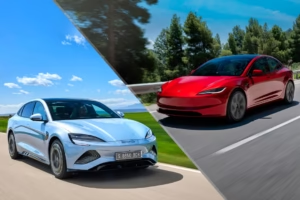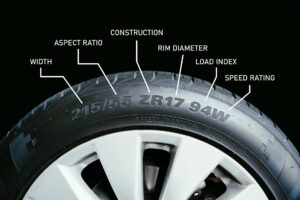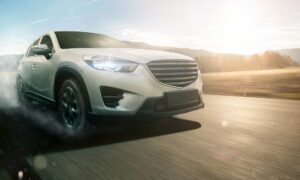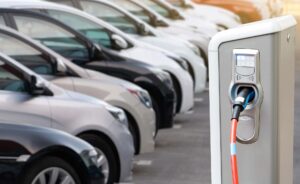How does a hybrid car save energy without breaking a sweat? It’s like having a car that’s always thinking ahead—using just enough gas, borrowing power from a battery, and even recycling energy when you hit the brakes. It’s efficient at its coolest, making every drive smoother, smarter, and a little easier on your wallet. Let’s take a closer look at how hybrids pull off this energy-saving magic!
A hybrid car saves energy by switching between its gas engine and electric motor, capturing energy through regenerative braking, and optimizing fuel use during different driving conditions. This clever system reduces waste and maximizes efficiency!
First Let’s Understand How a Hybrid Car Saves Energy
Hybrid cars are incredibly energy efficient because they combine an electric motor with a gasoline engine, working together to reduce fuel consumption. They’re designed to capture and reuse energy through systems like regenerative braking, which helps explain what makes hybrid cars energy efficient. While hybrids still use gas, their ability to rely on electric power for certain driving conditions significantly cuts down on fuel costs, making them a smart option for saving money over time. With the right components, such as a good car battery, these vehicles offer a reliable and eco-friendly driving experience.
The Basics of Hybrid Technology
Hybrid cars represent a fascinating chapter in the evolution of cars, combining the power of a gasoline engine with the efficiency of an electric motor. At the heart of this innovation lies the ability to capture energy that would otherwise be wasted, such as during braking, and store it in a high-capacity battery for later use. This process, known as regenerative braking, is a cornerstone of hybrid efficiency.
The technology doesn’t stop there. Sophisticated energy management systems decide when to switch between the gasoline engine and electric motor, ensuring the vehicle operates in the most efficient mode possible. For instance, at low speeds or during stop-and-go traffic, the electric motor takes the lead, minimizing fuel use. On highways or when extra power is needed, the gasoline engine kicks in seamlessly. This is why the hybrids are excellent for city driving, but also for long road trips.
Gasoline Engine Meets Electric Motor
What sets hybrids apart is their seamless collaboration between the gasoline engine and electric motor, offering efficiency without sacrificing capability. While they aren’t typically the most expensive cars in the world, hybrids excel in practicality and value. For those seeking innovation with a hint of tradition, hybrids deliver the best of both worlds.

Driving Modes and Energy Optimization
Hybrid cars are built with multiple driving modes that adapt to your needs, helping you save energy and fuel no matter where you’re going. Whether you’re navigating city traffic, cruising on the highway, or tackling a mix of both, these modes ensure the car uses its resources in the most efficient way possible.
Switching Between Power Sources
One of the smartest aspects of a hybrid is its ability to shift seamlessly between the electric motor and gasoline engine. During low-speed drives, the car often relies on electric power to minimize fuel consumption. When more power is required, like for acceleration or climbing hills, the gasoline engine steps in to provide the boost. This smooth transition means the car always operates efficiently, conserving energy when possible and delivering performance when needed.
Eco-Friendly Driving Options
Many hybrids come with specific modes designed to maximize efficiency and reduce emissions. Eco mode, for example, tweaks the throttle response and energy use to prioritize fuel savings. Some models even offer full-electric mode for short distances, allowing you to drive entirely on battery power. These options let drivers tailor their experience to their journey, making every trip both eco-friendly and cost-effective.

What Kind of Battery Do Hybrids Use?
The heart of a hybrid car lies in its battery, which powers the electric motor and plays a key role in making hybrids energy efficient. These batteries are designed to store and release energy seamlessly, working in tandem with the gasoline engine. This collaboration between the battery and engine is what makes hybrid cars energy efficient, as it allows the vehicle to optimize energy use and reduce fuel consumption. Understanding the types of batteries used in hybrids and how they compare to those in electric cars is essential for grasping how these vehicles function.
Types of Batteries Found in Hybrid Cars
Batteries used in hybrid vehicles are usually either Lithium-Ion (Li-ion) or Nickel-Metal Hydride (NiMH). NiMH batteries are robust and durable, making them ideal for hybrids that rely on frequent energy cycling. On the other hand, Li-ion batteries, commonly found in newer hybrid models, are lighter and more efficient, offering better performance and higher energy density. These battery types allow hybrids to capture and store energy during braking or deceleration, a feature that distinguishes them from traditional gasoline-powered vehicles.
Difference Between Electric Cars and Hybrids
While both hybrid and electric cars rely on batteries, the difference lies in their primary power source. Electric cars use much larger batteries as their sole energy provider, eliminating the need for a gasoline engine. This allows them to operate entirely emission-free, but it also means they require external charging.
In contrast, hybrids combine a smaller battery with a gasoline engine, allowing the battery to recharge itself through regenerative braking and engine power without the need for frequent plug-ins.
Do Hybrids Need to Be Charged?
Most hybrids, known as conventional hybrids, do not need to be charged externally. They rely on regenerative braking and the gasoline engine to recharge the battery while driving. However, plug-in hybrids (PHEVs) are an exception. These models feature larger batteries that can be charged using an external power source, offering an extended electric-only range. This flexibility makes plug-in hybrids a great option for drivers who want to experience the benefits of both electric and hybrid technologies.

Comparing Hybrid Cars, Electric Cars, and Regular Cars
The automotive landscape offers a variety of options for drivers, with hybrid, electric, and regular gasoline cars, each bringing their own strengths and weaknesses to the table. Understanding how these vehicles differ in fuel efficiency, performance, cost, and environmental impact can help you make an informed decision that aligns with your lifestyle and needs. Let’s dive deeper into what sets these three types of cars apart.
Fuel Efficiency and Energy Consumption
Hybrid cars offer a middle ground in energy use, combining the benefits of a gasoline engine and an electric motor. This dual system allows hybrids to conserve fuel, particularly in city driving, where the electric motor can handle stop-and-go traffic. Electric cars, on the other hand, eliminate fuel consumption entirely by relying solely on battery power, which makes them highly efficient for short commutes or urban areas with charging infrastructure.
However, they require regular charging, and their range depends on battery capacity. Gasoline cars, while convenient due to their widespread fuel availability, consume significantly more fuel and are less efficient, particularly in traffic-heavy conditions, where idling wastes energy. This makes them the least fuel-efficient choice among the three.
Performance in Different Driving Conditions
Electric cars shine in urban settings, offering quick acceleration, quiet operation, and no tailpipe emissions from an exhaust. This makes them ideal for city dwellers who value a quieter and cleaner driving experience. However, their reliance on charging infrastructure can make long trips or rural travel more challenging, and potential buyers should consider the hidden costs of owning an electric car, such as home charging setup and battery replacement.
Hybrids excel in their adaptability, using electric power at lower speeds and seamlessly switching to the gasoline engine for highway driving or steep climbs. This versatility makes them well-suited for drivers who need efficiency in city traffic and reliability on longer journeys without being entirely dependent on charging infrastructure. Hybrids bridge the gap between electric and gasoline-powered vehicles, offering convenience and savings in a range of driving conditions.
Regular cars, while not as energy-efficient, have the advantage of simplicity and long-established fueling networks, making them convenient for extended road trips where charging or balancing power sources might not be practical. However, their performance suffers in city driving compared to hybrids and electric cars, as they cannot utilize regenerative braking or electric-only operation.
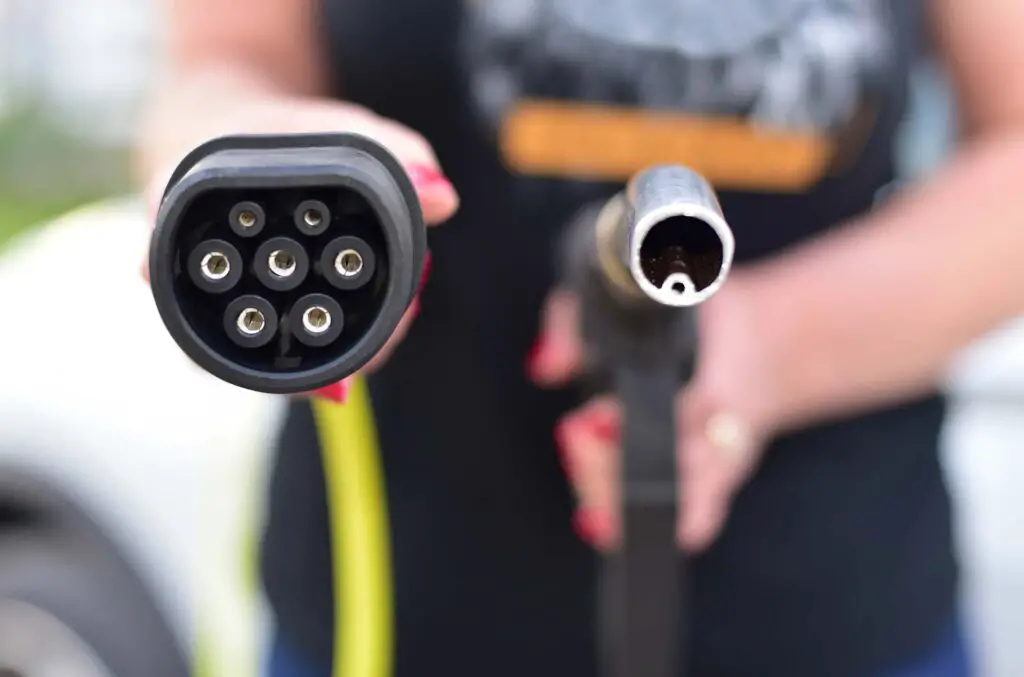
What Kind of Hybrid Models Are the Best?
Choosing the best hybrid model depends on your driving needs, preferences, and budget. Whether you’re looking for fuel efficiency, versatility, or advanced features, today’s market offers a variety of hybrids to suit every lifestyle. From compact cars to spacious SUVs, here are some of the top-performing hybrid models that stand out:
- Toyota Prius – The classic hybrid that set the standard for fuel efficiency and reliability.
- Honda CR-V Hybrid – A spacious, family-friendly SUV with impressive mileage and a comfortable ride.
- Toyota RAV4 Prime – A plug-in hybrid with a long electric range and robust performance.
- Hyundai Ioniq Hybrid – A sleek and efficient hatchback perfect for eco-conscious urban drivers.
- Ford Escape Hybrid – A versatile SUV combining practicality with excellent fuel economy.
- Lexus RX Hybrid – A luxury SUV offering a smooth ride and premium features.
- Kia Sorento Hybrid -A three-row hybrid SUV ideal for larger families needing space and efficiency.
Benefits of Hybrid Cars Beyond Energy Saving
Hybrid cars offer more than just impressive energy efficiency, they come with a range of perks that can make your driving experience more enjoyable and cost-effective. From slashing your fuel bills to supporting a greener planet, these vehicles go above and beyond the basics.
Lower Fuel Costs
One of the standout advantages of hybrids is their ability to dramatically cut down on fuel expenses. By relying on electric power during low-speed or city driving, hybrids use less gasoline overall, making trips to the pump less frequent. Over time, these savings can really add up, putting more money back in your pocket.
Reduced Carbon Footprint
Hybrids are also an excellent choice for anyone looking to minimize their environmental impact. With reduced fuel consumption comes fewer emissions, helping to lower your carbon footprint. By switching to a hybrid, you’re not just saving on fuel, you’re also contributing to cleaner air and a healthier planet.
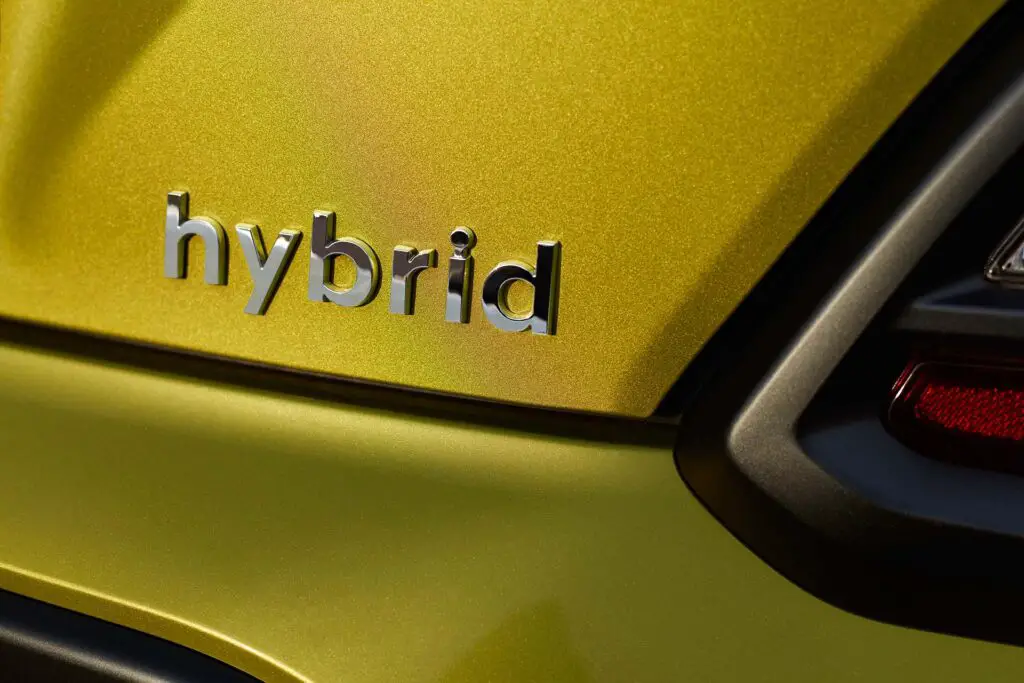
Is a Hybrid Car Right for You?
Your priorities, driving style, and daily routine will determine if a hybrid vehicle is best for you. If you value fuel efficiency, cost savings, and a reduced environmental impact, hybrids offer a balanced solution. They excel in stop-and-go traffic and urban areas, making them a great choice for city drivers looking for a smoother, more economical ride. For those who aren’t ready to fully commit to electric vehicles, hybrids provide a practical middle ground, combining the benefits of electric power with the reliability of a gasoline engine. Whether you’re navigating daily commutes or weekend getaways, a hybrid could be the perfect match for your needs.

